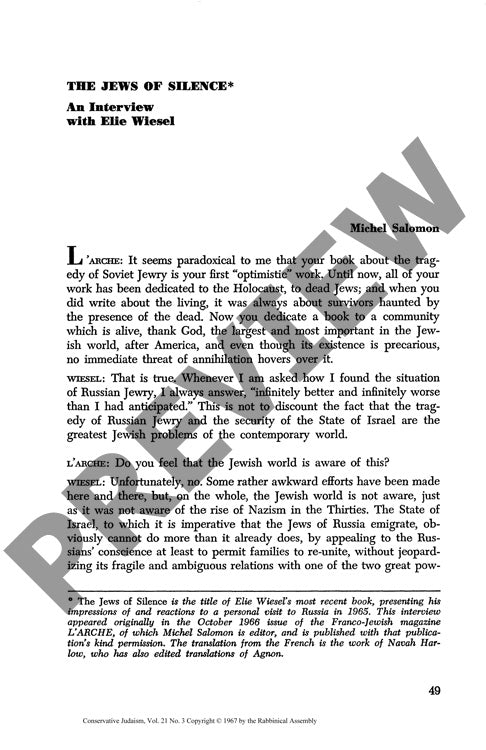The Jews of Silence an Interview with El
Couldn't load pickup availability
This interview with Elie Wiesel examines the situation of Soviet Jewry following his 1965 visit to the USSR during the High Holy Days. The methodology involved direct observation and personal encounters with Soviet Jews in Moscow, Leningrad, Kiev, and Tiflis. Wiesel characterizes the conditions as paradoxically "infinitely better and infinitely worse" than anticipated, revealing a complex reality of oppression and resistance. The study documents pervasive fear among Soviet Jews, who live under constant surveillance and employ fictitious names in synagogues due to suspected informants. Despite systematic efforts toward forced assimilation and ongoing economic trials, the research reveals remarkable spiritual resistance, particularly among Jewish youth who publicly affirm their identity during religious celebrations. Key findings include instances of Jews returning to Judaism after failed assimilation attempts, clandestine Jewish education efforts, and acts of communal defiance against synagogue closures. Wiesel concludes that while Soviet Jews demonstrate extraordinary courage and faith in maintaining their identity under oppressive conditions, the international Jewish community remains inadequately aware of and responsive to their plight. The work presents Soviet Jewry as the most pressing Jewish issue of the contemporary era, requiring moral rather than political intervention to address this crisis of isolation and systematic cultural suppression.

More Information
-
Physical Description
-
Publication Information
Published 1967
ISBN
-
Publication Credits
Michel Salomon

